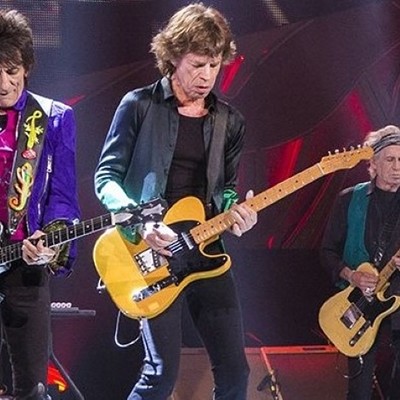Almost halfway through the year, we've seen a lot of huge music news already. David Bowie came back and put out a new record, Neutral Milk Hotel reunited, and Daft Punk put out their first proper record in eight years. It's definitely been a big year already, and it promises to continue with the upcoming releases of albums from artists like Kanye West, Black Sabbath (with Ozzy singing with the band for the first time on record since 1978), Wu-Tang Clan, Elton John, Franz Ferdinand, Queens of the Stone Age, and the second half of Justin Timberlake's The 20/20 Experience.
In a year where so many huge artists are releasing new music, it might be hard to keep up with the current trends awakening in the underground, or some of the lesser-known breakout artists. Luckily, the online music media keeps a spotlight on that and we can observe these trends as they're happening. For me personally, one of the most exciting trends is that 2013 appears to be the year that post-punk has broken out once again.
When post-punk first evolved in the late '70s, it took the existing groundwork of punk rock to its logical extreme, extracting the essence of punk and breaking down the barriers of tradition to create something wholly original and uninhibited by anyone's conception of what Western music should sound like. From this spawned the No Wave scene in New York, where artists like Lydia Lunch who didn't even know how to play instruments were now creating songs, or some bizarre facsimile.
From there, post-punk evolved as many of the all-time greats of the genre appeared. Into the '80s, bands like the Fall, Public Image Ltd., Wire and Suicide continued to innovate. They paved the way for the explosion of "college rock" bands that came shortly thereafter, like Sonic Youth and Pavement, groups who reinstated some of the song structure but retained the lessons they had learned.
In 2013, the lessons have not been so much forgotten as left dormant to rot for many years before being unearthed by discoverers and explorers, much like Greek and Roman sculptures were dredged up by Renaissance artists to employ in new ways.
Now the new wave is discovering the art of the original New Wave, and even some of the surviving masters are making returns to resurrect the genre. It's an exciting time for post-punk fans.
Already we've seen the release of a brand-new album from the Fall called Re-Mit. Their most playful and nostalgic release in some time, it looks back to the band's '80s heyday by resurrecting their synth-laden sounds of old.
Before that it was Wire, whose Change Becomes Us was their most vital record in years, also reviving unreleased and previously unrecorded tracks from their earliest days as a band. The songs are no worse for the wear in 2013. In fact, they sound more relevant today than at any other time. That's possible because Wire's early sound is now contemporary again.





